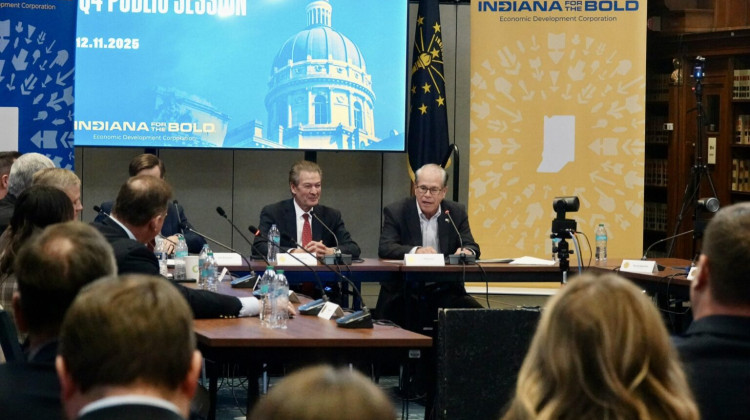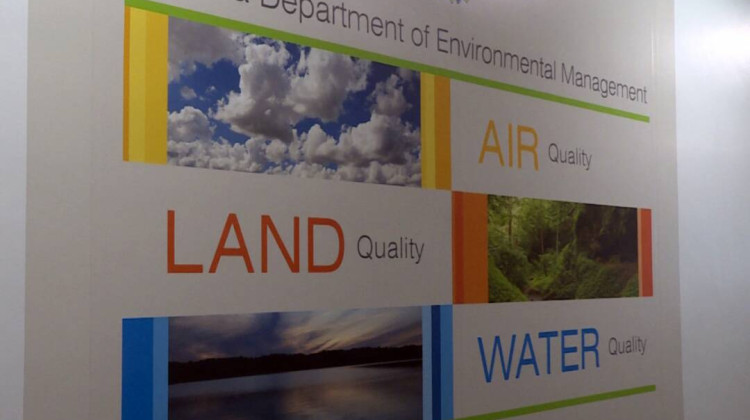The City of Lake Station in northwest Indiana sold its drinking water system to Indiana American Water for more than $20 million. It’s one of more than a dozen water and wastewater systems the company has acquired around the state in the past decade.
City attorney Michael Deppe says the sale will allow Lake Station to pay off millions of dollars of debt and help the city pay for costly repairs to its aging infrastructure — like fixing water main breaks.
“Every time we have something that’s dramatic, naturally it's the water customers that have to pay for it," he says. "Well, this way if something does happen, you know, it would be spread out throughout all of American Water’s customers.”
IAW spokesperson Joe Loughmiller says spreading out costs amongst the company's customers keeps prices steadier — you don't see the spikes in rates that you might find with smaller utilities.
READ MORE: Indiana Town Considers Water Utility Sale
He says because they serve several towns in northwest Indiana, it's likely that Lake Station could share resources with other cities nearby.
"We have economies of scale and that's one of the benefits of being a large company is that, as we make improvements, as we consolidate these operations, the cost per customer actually goes down," he says.
Privatizing drinking water has become a national trend — and it has its pros and cons.
According to Indiana University professor David Konisky, private utilities tend to have fewer environmental violations than public ones. He says there's not a clear answer why, but he suspects it's that private companies often have access to more resources and more employees with better knowledge of complex environmental regulations.
“They also can raise rates on their customers. That's a much more easy process for them as opposed to a similar government-owned facility," Konisky says.
That means there's less of a barrier for private companies to make costly improvements like for water infrastructure.
Janice Beecher is the director of Michigan State University's Institute of Public Utilities. She says, on the other hand, spreading out costs of upgrades among a private utility's customers can shift the burden to other communities that may not benefit.
And it’s not easy for cities to get their drinking water systems back. Fort Wayne paid $67 million to reacquire its water system from Aqua America in 2014.
Beecher says there's no one system better than the other — whether a city should privatize its water or not depends on so many different factors. She says the important thing is that residents are involved in decision making.
"It should take place in the context of a very open process, a very inclusive process with dialogue with the community and really considering the various trade offs," Beecher says.
Contact Rebecca at rthiele@iu.edu or follow her on Twitter at @beckythiele.
Indiana Environmental reporting is supported by the Environmental Resilience Institute, an Indiana University Grand Challenge project developing Indiana-specific projections and informed responses to problems of environmental change.
 DONATE
DONATE










 Support WFYI. We can't do it without you.
Support WFYI. We can't do it without you.